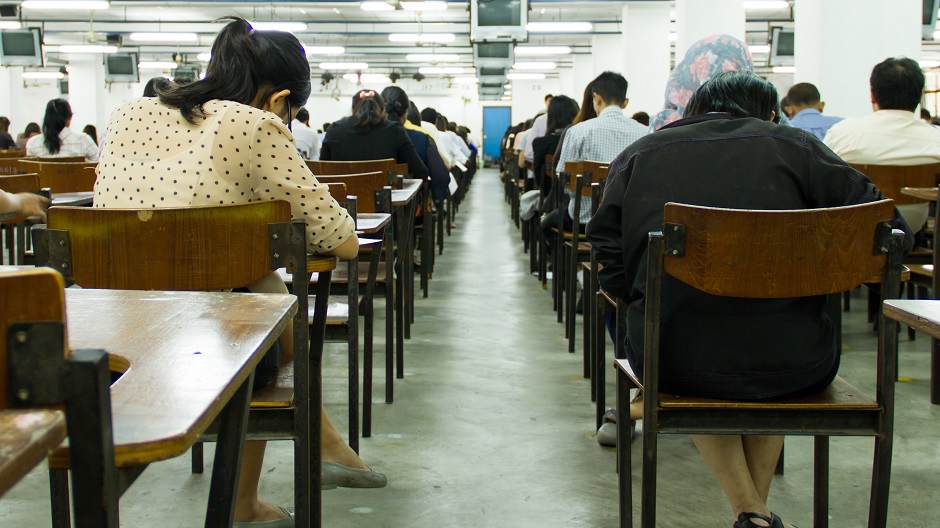07 Jun 2019
In the lead up to the 2019 FIFA Women’s World Cup, which kicks off in France this week, China’s all-sports TV station CCTV5 has been broadcasting full-time coverage of Chinese women’s football team, featuring its achievements in recent decades.

Nicknamed the ‘Steel Roses’, the team is set to compete against some of the world’s best this month in Group B, including two European female football powerhouses – Germany and Spain, and World Cup debutants South Africa.
In an effort to stir national sentiment, CCTV5 has decorated its coverage with pink blooming roses in the screen edges and emotive Chinese opera songs play in the background, as their coverage showcases the Steel Roses’ success in previous international tournaments.
Their surprisingly impressive record of trophies and medals is proof of the undeniable hegemony with which they dominated female football throughout the 1990s. But nearly two decades after their prime, the Steel Roses are struggling to bring back the spirit of their heyday.
During their history, the Chinese female football team has consistently outperformed their male counterparts on the global stage. Throughout the 1990s they were among the best teams in the world with a track-record to prove it – seven times champions of the Women’s Asian Cup from 1986 to 1999, runners-up in the 1999 Women’s FIFA World Cup and a silver medal in Football at Olympic Games in Atlanta, United States in 1996.
The men’s national team, on the other hand, hasn’t even qualified to a single World Cup, leaving aside the coincidental qualification they obtained for the 2002 World Cup, after South Korea and Japan were automatically selected for being the event’s hosts.
Much of the women team’s success in the 1990s can be attributed to Sun Wen – the captain, and arguably the best player and creative brain of the Chinese female squad. Wen, a former student of Fudan University at Shanghai, is not only the best football player China has ever seen, but is also considered by many experts as one of the best players in the history of the sport.
Her refined skills with the ball, outstanding physical condition and lethal technique to score goals earned her the Golden Ball and Golden Boot in the 1999 FIFA World Cup – trophies that not a single Chinese male football player could even dare to dream about.
When Wen and her team mates retired from the national football team in the 2000s, a new generation entered the game with the same desire and will, but who are yet to deliver the same impressive performances as their predecessors. The new generation Steel Roses achieved a modest third-place in the last two Asian Women’s Cups and did not even qualify for the 2011 World Cup or the 2012 Olympics in London.
But could the upcoming FIFA World Cup be the game-changer for the Steel Roses? The team cemented their place in the Cup last year when they qualified by winning third-place in the Women’s Asian Cup in Jordan, after losing a semi-final against Japan.
Today the Chinese women’s team will run onto the pitch to play against Germany in what is certain to be a thrilling match. With an average age of 27, the Chinese side are experienced and ready to deliver. Four of the players come from the team of one of the historical cradles – and probably the most important one – of Chinese football, the northeastern city of Dalian in Liaoning province. Wang Shuang, a 24-years old that plays for Paris Saint-Germain, rises as the main player to watch and the possible successor of superstar Sun Wen.
But the path that has led the Steel Roses to this year’s World Cup has not been without adversity. The financial and institutional context of female football in China during the past two decades has seen women footballers have to overcome significant social and financial barriers, in what is a male-dominated, billion-dollar football industry.
It is an industry that saw tremendous growth in popularity and investment following the restructure of the Chinese Super League in the early 2000s, as state-owned and private conglomerates, mostly in real estate and entertainment industries, acquired male football teams. Outrageously high salaries, massive infrastructure and first-class sponsors now characterise Chinese male professional football. In addition, China’s central government contributes an enormous budget to recruit foreign trainers and build first-class facilities across the country to improve the quality of Chinese football, which for all practical purposes could be considered Chinese ‘male’ football. Yet we are still waiting for the Chinese men’s football teams to deliver a decent performance in any category.
Despite the financial difficulties and lack of institutional support, the Steel Roses are once again ready to step in the pitch. Their performance this month will not only be of outstanding quality in technical terms, but at its core it will be an inspirational showcase that exemplifies how ‘glory’ is a precious gem that is always found bare-hand struggling amidst adversity.
If the Chinese female players do not make it to the knockout stage as Group B winners, they will likely have to play against either Japan or United States in the round of 16 – currently the two best teams in the world. The stage is set for the Steel Roses to make a historical and unforgettable come back.
By Miguel Hidalgo Martinez
Dr Miguel Hidalgo Martinez is an academic in the Department of China Studies at Xi’an Jiaotong-Liverpool University. His research focusses on the urban and political economies of contemporary China.
07 Jun 2019
RELATED NEWS

Explainer: Gaokao – the exam that defines a nation
This week approximately 10 million students in China will undertake an exam that will play a defining role in their career path. The university entrance e...
Learn more

Real estate and politics: the owners of the game
In 2018 a record-number of Chinese fans tuned into the FIFA World Cup in Russia despite of the poor performance of the men’s national team, which are current...
Learn more








